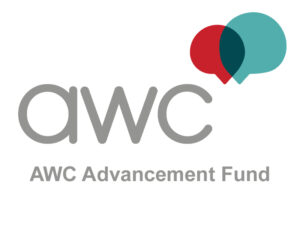 As an undergraduate at the University of Iowa, both my Communication Studies and Art majors listed internships as an optional requirement. Today, I often reflect on the power my internships have had in shaping my career.
As an undergraduate at the University of Iowa, both my Communication Studies and Art majors listed internships as an optional requirement. Today, I often reflect on the power my internships have had in shaping my career.
My first, as a full time graphic designer, taught me I didn’t want to use this skill exclusively. Yet, I am grateful each and every day of my career for the expertise I developed in visual communication during my internship.
My current internship is helping transition my career into the marketing and communications field, as well as contributing to a diverse portfolio of projects. But more importantly, my internship today, has blessed me with mentors that encourage my success and provide valuable insight to my projects on a daily basis.
In these ways, the advantages of having an internship are not limited to the prospect of just gaining a full-time position. Internships can help identify what you don’t want to do, just as much as getting your foot in the door. So what should you consider as we approach the internship season? Here’s my advice to gain the most from your internship experience:
Choose the Right Opportunity
The advice I’ve continued to follow in my career, comes from a TED Talk, in which the speaker posed the questions,
- “Would you develop the same skills if you stayed in your current situation,” and,
- “Would you be provided the same opportunities to network with people in this field or position if you stayed in your current position?”
I’ve referenced this advice time and time again to shape my own career decisions. It helps to avoid a negative mindset of all or nothing thinking. For example, because I have not had a fully developed experience in a certain ability to date, I should hold myself back from the chance and pursue something more comfortable.
Instead, approach your internship as an opportunity to learn what you want to learn from subject experts. To do so you must have a plan. First, select an internship with people whom you think you can learn from and who show signs of being able to invest time in your development. The second is to identify and communicate your desired projects. If these factors seem possible, this opportunity very well may be the right one to pursue.
Location
This consideration can often be overlooked as a byproduct of where we can afford to live during our college summers. Yet, it is important to recognize the impact the location of your internship plays in building your network. Companies invest time and resources into the communities they establish as home base. Often establishing headquarters in areas they feel have the potential of future partnerships and collaboration. This includes talent like you.
If you already have an idea of the community where you’d like to begin your career, I highly recommend selecting an internship there. It is worth getting creative on expenses if your location post-graduation is a top priority.
That way, when you begin the search for a full-time opportunity, your experience has a greater chance of lending a connection to your desired next employer. Through networking, or simply, recognizing the name of your previous employer. Having those connections established before graduation better establishes credibility in the industry community.
Act the Part
There is an element of faking it until you make it in internships. Often an internship is the first professional office experience you have encountered, or even perhaps your very first employment. Don’t be afraid to ask about what you don’t know, as doing so can avoid expensive mistakes. Be encouraged that you were selected by your supervisors as an intern they see as having the potential to provide valuable support.
When trying something new for the first time in your internship, embrace what you do know and look for opportunities to pair up with those that possess strengths in areas which are less developed. This will provide you a safe environment to gain advice until your skills catch up with more experience. Recognize that an internship is the vehicle for your development. Confidence in your abilities will come in time, in the meantime, show confidence in your ability to learn.
Search for the Right References
Lastly, one of the most important items to prepare during your internship is to identify the right references. These will help you for years to come following your internship. Seek two different kinds of reference: a supervisor and a co-worker. Identifying one of each provides potential employers with the opportunity to ask more directed questions on your contribution to the company, instead of always relying on generic praise.
Fostering these relationships during your time at the company will not only provide you with references, but will also develop lasting friendships that will continue to inspire and provide meaningful insights as your career progresses.
About the Author

Kate Bloomburg is the Marketing & Communications Intern at West Bank in West Des Moines, IA, and previous Graphic Design Intern at Iowa Public Television. Recipient of the Greater Des Moines AWC Emerging Professional Scholarship of 2016, Kate received her baccalaureate degree in Communication Studies and Art from the University of Iowa, and a graduate Publishing Certificate from the University of Denver.

